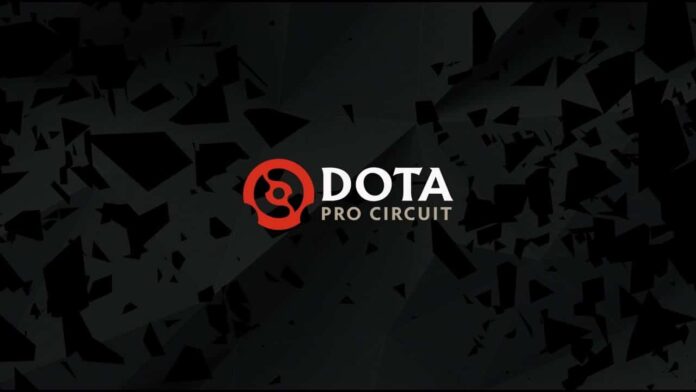[ad_1]
Valve has pulled the plug on the DPC. What does it imply for the way forward for the aggressive Dota 2 scene?
The speculations circulating among the Dota 2 community have now been unequivocally confirmed, as Valve has formally declared the cancellation of the Dota Professional Circuit, also referred to as the DPC. Valve issued an official statement on September 14, saying that the 2023 Dota Professional Circuit season would mark the top of the DPC period.
⚡️ NO MORE DPC in Dota 2https://t.co/tFYEYKu0q9 pic.twitter.com/cM3KWbJwgd
— Arseny Kuzminsky (@_koozya) September 14, 2023
Valve’s determination to conclude the DPC marks a major turning level within the aggressive Dota 2 panorama. Beginning subsequent yr, The Worldwide will undertake a unique strategy to ask groups, departing from the DPC-based system that has been in place since 2017. This method initially comprised a mix of Minors and Majors and later transitioned into the Regional League construction in recent times.
Why did Valve Scrap The DPC?
Valve’s weblog put up affords an evidence for the group’s determination to discontinue the DPC, contending that it was finally detrimental to the skilled Dota 2 scene quite than useful.
It is plain that Valve’s substantial prize pool injections into the regional leagues vastly supported skilled gamers globally and offered followers with a wealth of Dota 2 content material. As Valve and event organizers sought to scale back bills this yr, the standard of broadcasts plummeted considerably, resulting in a significant decline in DPC match viewership.
Viewership of TI 2022 Group Stage is down by nearly 40% – /u/eSportsStats #dota2 https://t.co/dFLRlz4BJ9
— Reddit Dota 2 (@redditdota2) October 19, 2022
Valve additionally underscored the truth that their stringent pointers for event organizers left little room for inventive freedom. Furthermore, with the DPC occupying a considerable a part of the aggressive calendar, there have been few exterior tournaments on the highest stage in recent times. The optimistic outlook is that discontinuing the DPC will pave the best way for the return of those tournaments and a resurgence of innovation throughout the scene.
The DPC drew criticism from many, including the Team Secret captain Clement “Puppey” Ivanov, a permanent presence in Dota 2 competitions relationship again to the pre-2011 period. Puppey shared his perspective, characterizing the prolonged league construction as “meaningless” for Dota 2, whereas he warmly remembered the time of the five-Main system, a format that supplied gamers, followers, and organizers a richer and extra immersive Dota 2 expertise.
What to Anticipate within the Put up-DPC Period?
Valve has but to unveil a clear-cut alternative for the DPC, leaving followers to ponder whether or not the ESL Professional Circuit may step into the highlight. This yr’s aggressive Dota 2 panorama has already performed host to a number of ESL tournaments, with the head being the Riyadh Masters, boasting an astonishing $15 million prize pool.
A number of of the smaller event organizers, which had rewarded us with thrilling Dota tournaments previously, have both disappeared or restructured their operations. An illustrative living proof is Past The Summit, the inventive thoughts behind the Dota Summits, which ceased its operations in February.
Moonduck Studios & Company, the inventive minds accountable for bringing us iconic occasions like Midas Mode and the inaugural Captain’s Draft tournaments, have remained dormant over the previous 4 years.
The organizers at WePlay, identified for his or her profitable administration of occasions such because the AniMajor and Bukovel Minor, had been compelled to transition to a brand new studio-based mannequin in Los Angeles as a result of unlucky invasion of Ukraine. Consequently, they haven’t hosted a Dota event in practically two years.
The withdrawal of quite a few event operators from the Dota scene in recent times has heightened the chance that the ESL FACEIT Group, backed by Saudi Arabia, may safe a near-monopoly within the realm {of professional} Dota.
Ought to Dota Followers be Involved?
No matter its optimistic or detrimental points, the DPC served as a basis for stability, particularly benefiting Tier 2 aspects of the aggressive scene. As an alternative of rectifying the DPC’s most extreme issues, Valve has chosen to scrap the system altogether, doubtlessly leaving a number of areas and gamers in a state of ambiguity.
Earlier than the DPC asserted its dominance, Dota 2 prospered by way of a vibrant panorama of unbiased tournaments. The demise of the DPC may herald a return to the sport’s grassroots, though even revered group figures like Murielle “Kips” Huisman nonetheless harbor reservations about this transition.
I do not know the way to really feel about this. Because it was applied the DPC was a sluggish, monotonous calender-hog. However killing it will not return us to the glory days of Dota 2 until Valve additionally returns to their outdated methods of supporting the group and the scene. https://t.co/YvxKVSO3p1
— Muriëlle “Kips” Huisman (@Kipspul) September 14, 2023
There may be Room for Optimism
Whereas the void left by Valve’s monetary backing for world prize swimming pools could show tough to fill and could have a considerable impression on some areas, there’s anticipation for an improved viewing expertise in 2024. This hope stems from the frustration surrounding two out of the three majors this yr, together with intermittent points with broadcast high quality in regional leagues.
With tournaments now not dependent solely on Valve’s approval to safe DPC occasions and as an alternative pitted in opposition to one another in competitors, the strain to innovate and entertain to draw viewers will probably be higher. This transformation is anticipated to yield extra participating and gratifying tournaments for viewers.
Bringing again crowdfunding for unbiased tournaments may function a manner for Valve to breathe new life into the aggressive Dota scene. This strategy not solely elevated prize swimming pools but in addition sustained the viability of distinctive occasions that had been devoted to preserving the Dota magic alive for followers.
[ad_2]
Source link





